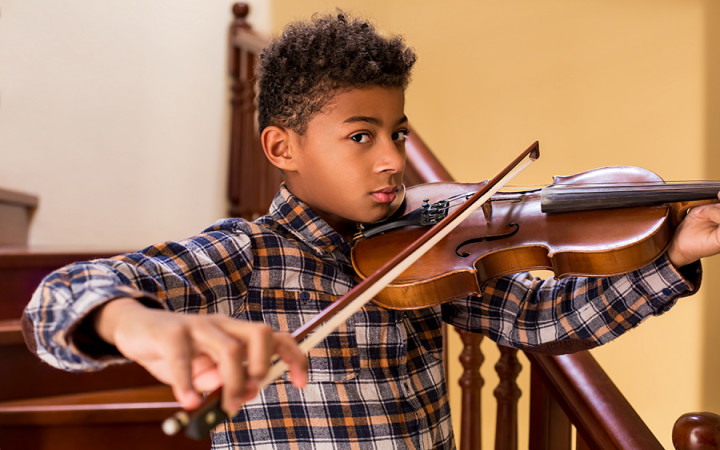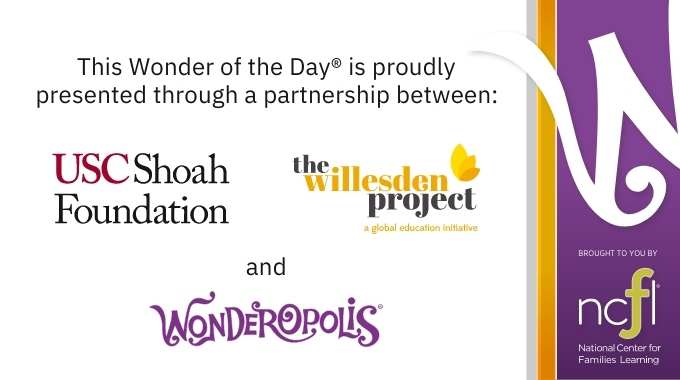Today’s Wonder of the Day was inspired by Sarai. Sarai Wonders, “Why are some people musical prodigies?” Thanks for WONDERing with us, Sarai!
Do you like looking back at old pictures and videos from when you were young? Most kids today have lived their whole lives in the digital age, which includes social media. That means there may be many pictures and videos of the great times in their lives.
But, that media might not capture your first concert with the Boston Symphony Orchestra. Or videos of your starring role in a Steven Spielberg movie. Or an article about your first Nobel Prize—unless, of course, you are a child prodigy.
If you saw the video in this Wonder’s gallery, you heard pianist and author Mona Golabek describe her mother—Lisa Jura, a musical prodigy and Holocaust survivor who lived in Vienna, Austria. After Nazi Germany invaded and occupied Austria, it became illegal to teach Jewish children. This crushed Lisa’s dreams of being a musician. Lisa’s parents made the hard choice to send her to London via the Kindertransport to keep her safe and allow her to pursue her music. In spite of Lisa’s troubles, she held on to her dream and became a concert pianist.
Many kids are quite smart. You may be at the top of your class or part of a special gifted and talented program at your school. You could have great athletic ability. You might even play a few songs on the flute or guitar.
True child prodigies, though, are quite rare. While there’s no strict definition, many experts think a child prodigy is someone who has professional skills before they reach 10 years old. That only happens in about one out of every 5—10 million people.
Child prodigies usually show a lot of talent in fields such as math, art, and music. Some researchers think prodigies are born with special gifts, while others believe their skills develop due to much study and practice—aided by supportive parents.
More than likely, child prodigies come from a blend of the two. Researchers have noticed a few things that most prodigies have in common: excellent working memory, sharp attention to detail, above-average intelligence, and the drive to be the best—which means they practice a lot.
A famous child prodigy you’ve likely heard of is Wolfgang Amadeus Mozart. He was born into a wealthy musical family and encouraged at an early age to try music. He began playing the harpsichord at age three and wrote his first piece of published music at age five. By the time he was a teen, he had composed many types of music.
By the time he was eight, Stevie Wonder was a skilled musician. He made his first record at 12 years old and won many awards, including 25 Grammys and the Presidential Medal of Freedom. In 1989—at 39 years old—he became part of the Rock and Roll Hall of Fame.
Pablo Picasso was also a great child prodigy. As the son of a painter, he played with art supplies early in life. Some say he could draw before he could talk. He finished his first oil painting when he was nine years old.
In math, you may have heard of Blaise Pascal. As a child, he discovered—on his own—almost all of Euclid’s geometric proofs. He designed and built an early calculator and did experiments with fluid mechanics, perpetual motion, and atmospheric pressure.
Marie Curie, known for her work in physics and math, could read in both French and Russian by the time she was four years old. She became famous for winning two Nobel prizes and discovering radioactivity, which she named.
Venus and Serena Williams, tennis players, showed talent for the sport when they were young. The athletes were both seen as rising stars in their 1995 debut and won many major titles, including Grand Slams and Olympic medals.
You don’t have to be a prodigy to be good at something, though. With practice, you can do anything!
Preserving memories are a vital part of the human experience, and USC Shoah Foundation’s Visual History Archive contains over 55,000 testimonies from survivors and witnesses—using audio and video—to educate future generations about the Holocaust and other atrocities, in support of the Institute’s mission to develop empathy, understanding, and respect through testimony so the next generation understands the importance of learning from the Holocaust and making the world a better place. Its IWitness platform contains many of these testimonies that were gathered using recorded interviews to tell the stories of survivors and witnesses.
Standards: CCRA.L.6, CCRA.R.1, CCRA.W.9, CCRA.W.6, CCRA.W.2





